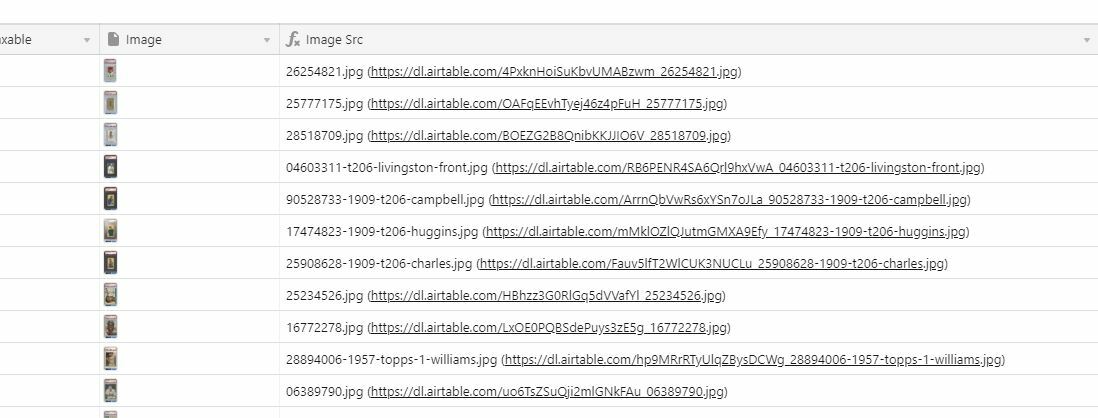So I have thousands of images stored as attachments within a base. Each record in the base has 1 image attached to the “Image” column I have created. When I export my base to a CSV file, instead of giving the URL it gives the internal image name followed by the url IN ( ). I can’t type out a url in here so I have attached a screenshot of what it is doing
I can’t type out a url in here so I have attached a screenshot of what it is doing
I need the raw CSV file exported to have a properly formatted URL:
I can’t type out a url in here so I have attached a screenshot of what it is doing
As a workaround, I am trying to create a new formula field next to the image column that uses a formula to delete the beginning and end of the improperly formatted URL. If I create a formula field and simply set it to = {Image} I can get that field to display the improper URL:
Is there a way to expand upon that formula similar to a excel where I could maybe use a MID & FIND combo to format the result as desired?
Or as an even simpler solution, is there a way to pull the exact url and have it save properly in a field without the garbage?
Any help would be appreciated. I have been struggling with this for days… 




